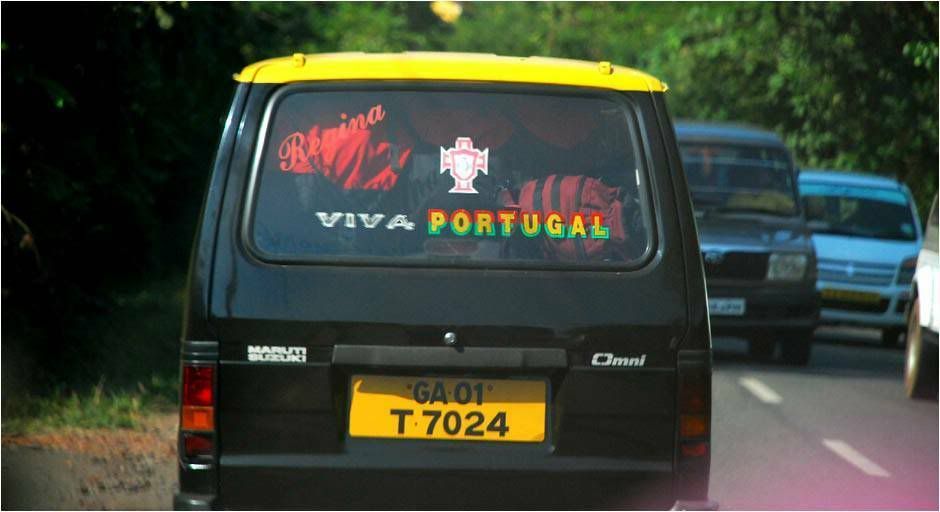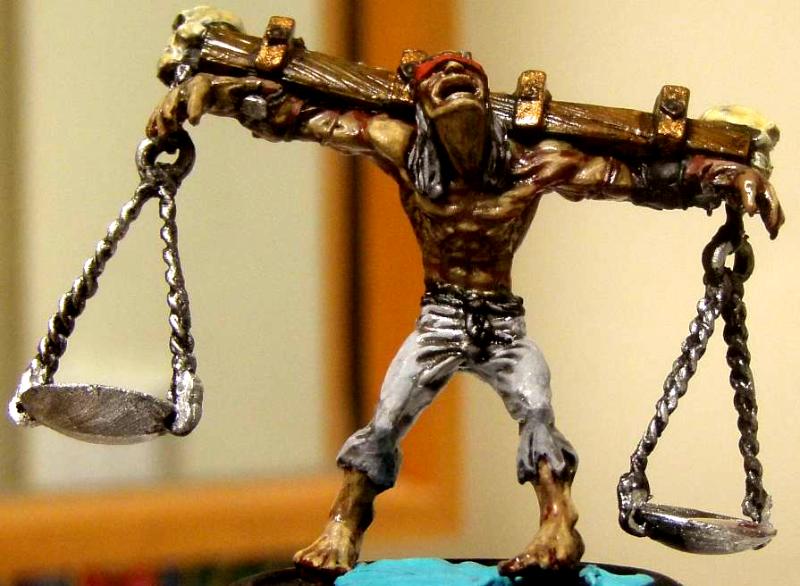 Not too long ago
I was part of a group being offered a guided tour of the palace of Tristão da Cunha, a Portuguese
nobleman and adventurer who was nominated the first Viceroy of Goa. Even though
nominated, however, da Cunha was not able to take up his position owing to a
case of temporary blindness. Yet this
did not stop Cunha from acquiring other important charges from the Portuguese
crown. At some point in the course of this tour the guide paused and spoke of
the fact that, in 1514, Tristão da
Cunha was sent by Dom Manuel II as ambassador to Pope Leo X. Trying to
impress on his audience the significance of the embassy, our tour guide
indicated that the embassy proceeded to the court of the Pope in grand style,
containing, in addition to the famous elephant Hannibal, “Indians, Africans and
Amerindians.” The guide then went on to express his disappointment that the
quincentennial anniversary of this event had passed by almost unmarked.
Not too long ago
I was part of a group being offered a guided tour of the palace of Tristão da Cunha, a Portuguese
nobleman and adventurer who was nominated the first Viceroy of Goa. Even though
nominated, however, da Cunha was not able to take up his position owing to a
case of temporary blindness. Yet this
did not stop Cunha from acquiring other important charges from the Portuguese
crown. At some point in the course of this tour the guide paused and spoke of
the fact that, in 1514, Tristão da
Cunha was sent by Dom Manuel II as ambassador to Pope Leo X. Trying to
impress on his audience the significance of the embassy, our tour guide
indicated that the embassy proceeded to the court of the Pope in grand style,
containing, in addition to the famous elephant Hannibal, “Indians, Africans and
Amerindians.” The guide then went on to express his disappointment that the
quincentennial anniversary of this event had passed by almost unmarked.
I instinctively
stiffened when I heard this description of the embassy. Given that the guide had been engaging in
what is a common Portuguese habit of referring to the early modern Portuguese
as “we Portuguese”, there was a certain suggestion of unequal power relations
between the Portuguese and the aforementioned peoples that I found
distasteful. My presentiment was not
misplaced. Hardly a couple of minutes after this description, an acquaintance
who was also a member of the group came up to me and grinning broadly suggested
“Why Jason, to commemorate the quincentennial we should send you to the Pope!”
Even though I
laughed off the suggestion, I was furious and felt humiliated. Having met only
once before, and belonging to an extended circle of friends, this man was
clearly trying to be friendly, and yet he had got it so wrong! He was blissfully aware of my resentment
because he was firmly in the grip of two features of Portuguese life. The first
is the tendency of segments of elite Portuguese to have a sense of ownership
over Goa, and other former territories of the empire. The second, is the
failure of contemporary Portuguese to make a distinction between themselves and
the Portuguese of the early modern period.
Unknowningly or
otherwise, this man, was violating a number of the norms that should structure
post-colonial relations in the Portuguese world. First, by suggesting that I
was an “Indian”, he was effectively placing me in a larger racial category that
robbed me of the peculiarities of my history. Second, there was the failure to
recognise that the persons sent to the Pope in the embassy of Dom Manuel II
were probably not free, but enslaved persons.
Dom Manuel II used the exotica of these people in their strange, but
rich, dresses, to impress upon Pope Leo X, that he was a ruler of imperial
dimensions and deserved the privilege of the Padroado Real that would secure for him a pre-eminent place among
the princes of Christendom. In making this facile suggestion that presenting an
“Indian” to the Pope could amount to a meaningful commemoration of the event,
this man failed to see that he was repeating earlier models of unjustly hierarchical
relationships, rather than those of equality that should mark our democratic
times.
 There have been
at least two kinds of traditional responses to these situations. The first is
to use class to break up the racial humiliation involved, and thus suggest that
one’s ancestors were elites and never enslaved persons, and thus not the kinds
who were presented to the Pope. The
other response is that which has led to the more traditional Indian nationalist
type responses that we suffer in Goa. This response crafts a distinct Indian
identity for Goans that is opposed to the Portuguese, and crafts a Portuguese
history in Goa that is filled with one atrocity after the other.
There have been
at least two kinds of traditional responses to these situations. The first is
to use class to break up the racial humiliation involved, and thus suggest that
one’s ancestors were elites and never enslaved persons, and thus not the kinds
who were presented to the Pope. The
other response is that which has led to the more traditional Indian nationalist
type responses that we suffer in Goa. This response crafts a distinct Indian
identity for Goans that is opposed to the Portuguese, and crafts a Portuguese
history in Goa that is filled with one atrocity after the other. Both responses
are obviously problematic. The first because while opposing racism it
strengthens systems of class and caste oppression; the second on the other hand
ignores the fact that so much of a Goan identity – or any identity born from
the colonial encounter – is a mixed one. Being Goan we are as much Portuguese
as we are Indian. Rather than rejecting racism, this second retort is actually framed
within racist frames and consolidates racial identities. Not surprisingly,
given how caste is also a racial formation, it also works to consolidate
upper-caste identities, and their histories of displacement, even as lower
caste memories of liberation through the intervention of the Europeans and the
various Christian churches, despite the fact of slavery and other issues, are
cast aside.
Both responses
are obviously problematic. The first because while opposing racism it
strengthens systems of class and caste oppression; the second on the other hand
ignores the fact that so much of a Goan identity – or any identity born from
the colonial encounter – is a mixed one. Being Goan we are as much Portuguese
as we are Indian. Rather than rejecting racism, this second retort is actually framed
within racist frames and consolidates racial identities. Not surprisingly,
given how caste is also a racial formation, it also works to consolidate
upper-caste identities, and their histories of displacement, even as lower
caste memories of liberation through the intervention of the Europeans and the
various Christian churches, despite the fact of slavery and other issues, are
cast aside. In light of this
scenario, it appears that an ideal response to the situation I found myself in
rests not necessarily in quick come back, but a commitment to a larger and
longer dialogue committed to a broader agenda of democracy. The challenge is to
attack both Indian nationalism, that denies complex histories, and Portuguese
elitism that exercises a sense of ownership over the lower orders of the
country as well as persons from former territories.
In light of this
scenario, it appears that an ideal response to the situation I found myself in
rests not necessarily in quick come back, but a commitment to a larger and
longer dialogue committed to a broader agenda of democracy. The challenge is to
attack both Indian nationalism, that denies complex histories, and Portuguese
elitism that exercises a sense of ownership over the lower orders of the
country as well as persons from former territories.
(A version of this post was first published in the O Heraldo on 7 Aug 2015)




No comments:
Post a Comment